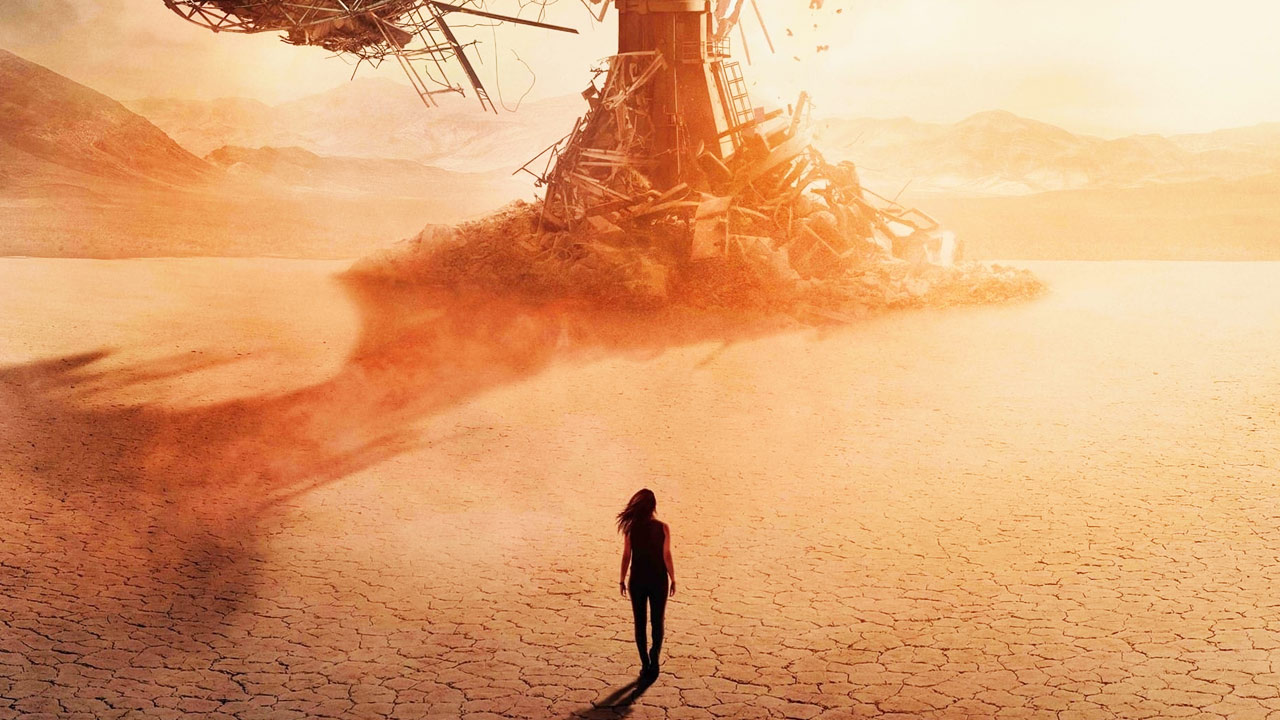Bold sci-fi or cosmic gobbledegook? That’s the 3 Body Problem

From the creators of Game of Thrones, sprawling sci-fi series 3 Body Problem adapts a complex, cosmos-spanning novel into a head-scratcher of a show. Luke Buckmaster says it’s a “good fit” for our turbulent times, but lacks any relatable main characters or sense of resolution.
Netflix’s adaptation of Liu Cixin’s time-and-continent-hopping sci-fi novel feels intensely sprawling and dislocated before the characters enter a virtual reality universe filled with its own strange lore, backstories and spiralling plotlines. After a while everything in the massively scoped 3 Body Problem feels like dangling threads: a series with no foundational core, no centre to hold the drama together. It initially seems like Auggie (Eiza González), a scientist and expert in nanotechnologies, will provide an anchoring presence, but it becomes increasingly clear that nobody’s holding our hand through a twisty, multi-tiered, multi-reality narrative tanged in “end of days” vibes.
The first episode begins with, by this show’s cosmos-traversing standards, a relatively normal scene: the shocking public death of a scholar in front of a virulent crowd chanting “down with academic authorities!”, seemingly protesting the very existence of knowledge and logic. No, this isn’t a premonition of American life during Trump 2.0, but a moment during the Chinese Cultural Revolution of the 1960s, which to be honest wouldn’t be my first choice of a historical period to visit if I could take the DeLorean out for a spin.
Soon later (let the jumping around begin!) we’re whisked into an Oxford University particle accelerator lab where another scientist, Saul Durand (Jovan Adepo), stares incredulously at a screen and says “all of the physics of the past 60 years is wrong. Science is broken.” There’s lots of moments like this, implying the seams of reality are buckling and seismic change is afoot. Which makes the show a good fit for the times: an era when previously unthinkable things are manifesting with startling frequency and velocity, shaking the tectonic plates of existence.
The quality and clarity of the series itself (co-created by David Benioff, D. B. Weiss and Alexander Woo) is another matter. This is a big, heavy watch with some head-turning moments but it gets exhausting pretty quick, and lacks characters to empathise with. Even people we like feel utterly dispensable—including Auggie, who begins seeing flashing numbers before her, like visions from a horror movie, which appear to take the form of a countdown. A colleague of hers has recently died by suicide, belonging to an alarming trend of scientists who are killing themselves. This catches the attention of Clarence Shi (Benedict Wong), an investigator for a mysterious intelligence agency.
There’s a scene, in the first episode, in which the stars in the sky turn on and off: “I observed the universe winking,” says Durand. In another production, divulging this would be a spoiler but here, trust me, it’s not—there’s countless other, far more cataclysmic money shots. So many they lose their impact. As if acknowledging 3 Body Problem‘s surplus of gee whiz! moments, that introductory episode ends with a tease of what’s coming up—not a “next on…” but with a “this season on…” This sizzle reel is stuffed to the gills with dramatic imagery, cagily executed so you don’t really know what you’re watching, which to be honest reflected how I often felt anyway.

Perhaps we can consider the screenplay a “chaos of imbalance,” to borrow words spoken by a character from inside the VR-esque fantasy world. This virtual universe, with vast desert settings that look a little like environments from the Asgard’s Wrath VR games, can be accessed when characters don a sleek and shiny headset. But not everybody can play; the game appears to choose particular people. What happens in the virtual universe (I won’t go into it, because it’s complicated, and my head already hurts) spills over, in certain ways, to events in the root or physical reality, with the suggestion that perhaps this technology didn’t originate from humans.
All of which begs certain questions: too many questions, in fact; too many possibilities. The cast make a pretty good fist of it, offsetting the madness with an air of straight-faced dignity, but the sheer volume of dramatic “uh-oh!” visions and trippy concepts makes the humans feel dispensable. A few hours in (this review encapsulates the first four episodes) everything starts to feel dangerously close to gobbledegook, and it’s clear anything vaguely approaching firm resolutions won’t be revealed any time soon.
For a sprawling sci-fi production with a similarly astral-projecting spirit, I recommend the Wachowski sisters’ 2012 blockbuster movie Cloud Atlas—which is also ostentatious and bamboozling, but comes together as an electric collage, uneven but dazzling.


















